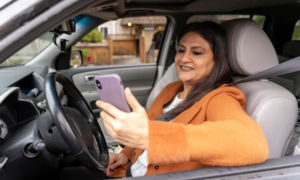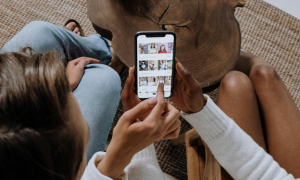
Sep 10 2024.
views 120The thought first came to me during a class discussion. My students and I were deep in conversation about media literacy and the psychology of belief systems when I had a revelation: have we become our parents? The very students who would roll their eyes at the misinformation their parents believed on WhatsApp or Facebook were now doing the same thing—but with TikTok. We were discussing how, these days, it seems we believe everything we see on TikTok, just as our parents had with their chain messages and forwards.
This idea stuck with me long after the lecture ended. How had we, a generation that prides itself on being tech-savvy and informed, started accepting so much information at face value, especially from a platform like TikTok?
But here we are, in 2024, falling for the TikTok equivalent: 10-second snippets of information, spliced together with catchy music and slick editing, that claim to tell us *everything* we need to know about life, science, relationships, and health.
So, how did we get here? And what is it about platforms like TikTok that makes us, in many ways, just like our parents?

The Psychology of Belief and Confirmation Bias
At the heart of it all is psychology. Humans are wired to seek information that confirms what they already believe—we call this “confirmation bias”. It’s a cognitive shortcut our brains take to make processing information easier, but it often leads us astray. Instead of questioning new ideas, we latch onto the ones that align with our existing worldviews. This phenomenon is especially amplified on platforms like TikTok, where algorithms are designed to show us more of what we already like or believe.
Say you come across a TikTok explaining how manifestation can change your life. Maybe you already believe that thinking positively will bring positive outcomes. Thanks to confirmation bias, you’re more likely to accept that TikTok video as fact without questioning it because it aligns with what you already believe. Over time, TikTok’s algorithm will push more of these videos to your feed, reinforcing your belief further, until it feels like undeniable truth.
This is where “belief confirmation” comes in—a psychological concept that refers to the tendency of people to focus on evidence that supports their pre-existing beliefs while ignoring or downplaying evidence that contradicts them. When you see something that resonates with your worldview, you’re more likely to trust it, even if it’s coming from a random person on TikTok with no formal expertise. It’s a slippery slope that leads us to accept surface-level “facts” at face value.
TikTok: The Perfect Storm for Belief Confirmation

Let’s not sugarcoat it: TikTok is designed to keep you hooked. Its endless scrolling, bite-sized content, and hyper-personalized algorithm create the perfect breeding ground for belief confirmation. While platforms like YouTube or Instagram often require you to seek out content, TikTok serves it up to you on a silver platter. The content creators don’t need to be experts, they just need to be good at grabbing your attention for a few seconds.
Moreover, the brevity of TikTok videos plays into the psychology of belief. The less time we spend analyzing something, the more likely we are to believe it without question. This is known as “cognitive ease”—the human brain prefers information that’s easy to digest and process. If a TikTok makes a complicated topic seem simple, your brain is more likely to accept it as true. There’s no need to check facts or dig deeper when a video has already summarized it for you in a visually appealing and emotionally engaging way.
Compare this to the hours we’d spend Googling or researching to confirm a piece of information just a few years ago. Now, why would we? TikTok has already done the legwork, or so we believe.
Have We Become Our Parents?
Let’s circle back to that initial thought: have we become our parents?
I’m not suggesting we’ve become out of touch or tech-illiterate. Quite the opposite, actually. We’ve adapted to technology faster than any previous generation. But we’ve also fallen into the same cognitive traps. Just as our parents forwarded questionable messages from their siblings or friends because it aligned with their understanding of the world, we now share TikToks with the same unquestioning certainty.
The ironic twist is that TikTok feels *modern* and *youthful*—it’s the epitome of Gen Z and millennial culture. But the way we consume and believe its content mirrors how older generations consumed information from email chains and Facebook posts. The platform may have changed, but the psychology of belief remains the same.
In fact, we may even be worse off than our parents in some ways. Their misinformation was often limited to chain emails or Facebook groups. Our misinformation is omnipresent, amplified by a highly sophisticated algorithm that knows exactly what kind of content will keep us watching. Where they were bombarded with messages from relatives and friends, we’re bombarded by influencers, creators, and anonymous accounts, all vying for our trust and attention.
Breaking the Cycle: What Can We Do?

It’s tempting to point fingers at TikTok and other social media platforms as the culprits, but the truth is, we bear some responsibility for our gullibility. After all, no one forces us to believe what we see; we choose to. But understanding the psychology behind our behaviour is the first step in breaking the cycle.
We need to make a conscious effort to question what we see on TikTok. Is the information credible? Who is the source? Are there conflicting viewpoints that we haven’t considered? These are questions we should be asking ourselves regularly, but often aren’t, thanks to the speed and ease with which TikTok delivers its content.
Another useful tool is learning to recognize confirmation bias when it happens. It’s easy to gravitate towards content that aligns with our beliefs because it feels reassuring. But growth happens when we challenge ourselves to engage with ideas that make us uncomfortable or force us to rethink our assumptions.
And let’s not forget the importance of media literacy. We should be encouraging each other—our peers, younger generations, and yes, even our parents—to think critically about the information we consume. This means not just skimming headlines or watching TikToks, but engaging with content more deeply, fact-checking, and being willing to admit when we’re wrong.
Embracing Curiosity Over Certainty
The University of TikTok isn’t going anywhere. In fact, social media platforms like TikTok will likely continue to grow and evolve, offering even more personalized, bite-sized knowledge for us to devour. The key is not to shut ourselves off from these platforms, but to approach them with curiosity rather than certainty.
We can be entertained by TikTok without accepting every claim it makes as gospel. We can share interesting videos without buying into their premises fully. And we can engage with content in a way that promotes learning, not just belief confirmation.
So, have we become our parents? In some ways, yes. But we also have the tools and awareness to break the cycle. The next time you scroll through TikTok, ask yourself: am I just looking for something to confirm what I already believe, or am I open to learning something new?
0 Comments